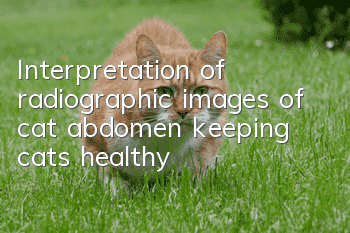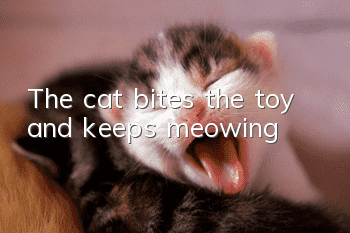Why does the cat have a big belly?

Cat belly enlargement is mainly divided into two types: physiological reasons and pathological reasons. Physiological reasons mainly include obesity, pregnancy, and eating too much. Pathological reasons mainly include ascites, pyometra, gastrointestinal Tract obstruction, parasitic infection. So when you see a cat with a big belly, don’t easily think that it is from the cat’s food. You must judge whether the cat is really obese or sick!
1. Physiological reasons
1. Obesity
If a cat becomes obese, its abdomen will accumulate more fat, so it will also appear to have a big belly. . This kind of obese cat needs to pay attention to weight control. It is recommended that the cat lose weight, otherwise it will be easy to get sick.
2. Pregnancy
If the cat is an unneutered female cat, you can also see a significant increase in belly after pregnancy. It is recommended to take the cat to the pet hospital to take an X-ray to confirm and prepare a delivery room for the cat.
3. Eating too much
If a cat eats too much at one time, it may temporarily become enlarged. It is recommended to feed cats an appropriate amount of probiotics to promote gastrointestinal motility, and to feed cats regularly and quantitatively.
2. Pathological causes
1. Ascites
After cats suffer from ascites, their abdominal girth will increase significantly, and they will also appear listless. , loss of appetite, vomiting, and elevated body temperature. At this time, it is recommended that the owner take the cat to the pet hospital for abdominal palpation examination in time. There will be obvious fluctuations. At the same time, the cat can be given an abdominal B-ultrasound examination, and then treated with diuretic drugs.
2. Pyometra
Pyometra will also cause the cat’s abdominal circumference to increase. At the same time, the cat will also show depression and anorexia. Some cats Polydipsia, polyuria and vomiting may also occur, especially in the closed type of pyometra, which does not have as obvious clinical symptoms as the open type, so it is easily ignored by the owners. If you find that your cat has symptoms of pyometra, you need to consult a professional pet doctor in time. If necessary, you need to take the cat to the pet hospital for a B-ultrasound examination to confirm the diagnosis.
3. Gastrointestinal obstruction
If the cat accidentally eats foreign objects, causing gastrointestinal obstruction, it will also cause a big belly, such as hair, stones, plastic, etc. Clinical symptoms The main symptoms are vomiting, diarrhea, and poor appetite. If the cat is found to have the above symptoms, it is recommended that the owner take the cat to the pet hospital for a x-ray examination to determine the nature of the foreign body. If necessary, surgery may be required to remove the foreign body.
4. Parasitic infection
If a cat is infected with internal parasites such as roundworms, it will also have a bloated belly, accompanied by symptoms such as increased food intake, weight loss, and parasites in the feces. At this time, you should consult your pet doctor as soon as possible to choose safe deworming drugs for your cat.
- How to train a cat not to jump on the bed?
- Cat is frothing, depressed and won’t eat
- What are the characteristics of Russian Blue Cats?
- What kind of cat is suitable for girls?
- Do Scottish Fold cats need to be neutered? How to sterilize Fold cats!
- What can cats eat to supplement their nutrition when they are pregnant?
- Is it okay to keep your own cats without vaccinations?
- What colors do cats like? Introduction to cat color preferences
- Comparison between cat age and human age
- Is it normal for a cat to be depressed after being vaccinated?



